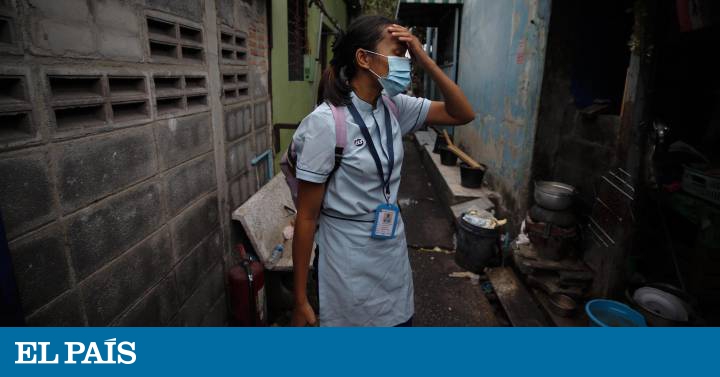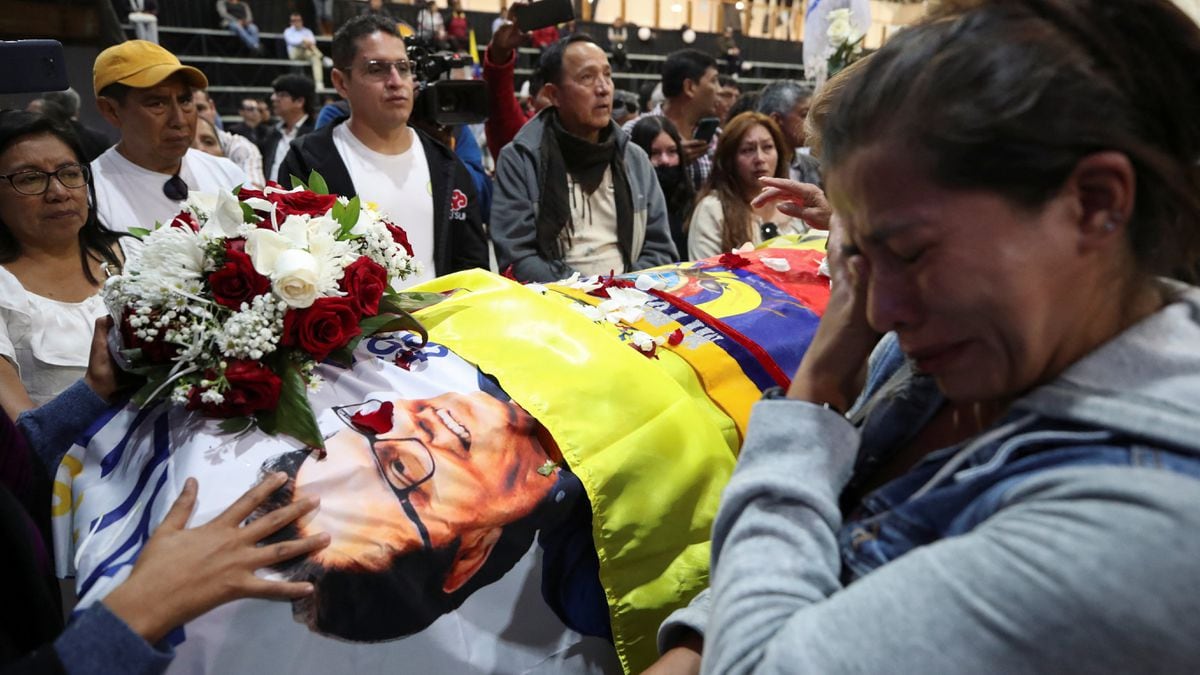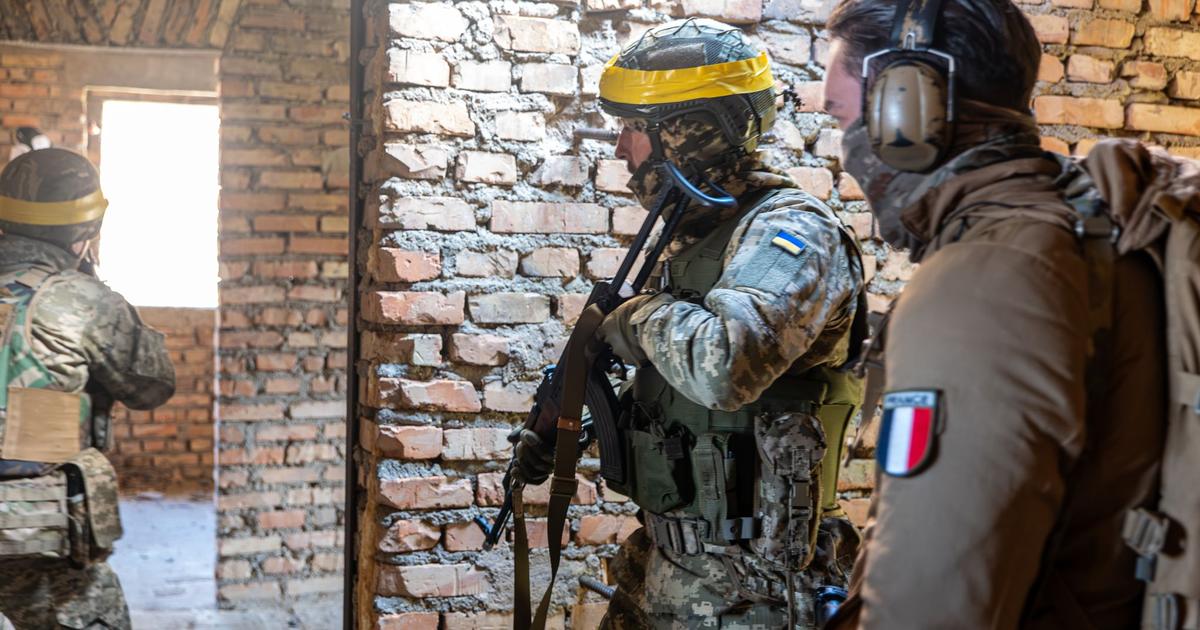The pandemic locked Maya in Nairobi with her abuser and put her life in danger. Leonarda took her job as a housekeeper in La Paz and pushed her into an extreme situation. She left Wannisa trapped in a Bangkok suburb by her two young children and other family members, whom she keeps working as a hospital cleaner.
MORE INFORMATION
- Violence against women worsens in humanitarian crises
- The beliefs with which the glass ceiling is made
- Invisible needs during pandemics
The coronavirus has killed more men, but women have been more exposed to chronic problems such as male violence or job insecurity. They also face a greater direct risk by occupying 70% of jobs in the health sector worldwide or being much more in charge of the sick and elderly. In short, invisible and unpaid work.
According to a UN Women study, covid-19 is increasing the inequality suffered by the female population in most of the world, mainly in the poorest countries. They dedicate an average of 4.1 hours a day to unpaid work such as housework or caring for dependents, three times as many as they do.
In Latin America, these tasks represent between 15.2% (Ecuador) and 25.3% (Costa Rica) of GDP. While all the unpaid care of the sick by women is equivalent to 2.35% of world GDP, which is equivalent to 1.5 billion dollars (1,350 million euros). Women, in general, earn on average 16% less than men, a percentage that reaches 35% in some countries, the study highlights.
The confinement by the coronavirus has been a trap for many. Reports of sexist violence have increased during this period in countries as diverse as France (30%), Argentina (25%) or Singapore (33%). Maya, Leonarda and Wannisa are part of an invisible front line in the battle against the virus.
A humiliating morning (Nairobi)
One humiliating April morning, the Kenyan Maya Raziki — a fictitious name because she still fears her assailant — chose to live, be reborn, to get away from a husband who annulled her with screams and beatings. "Most (battered women), especially if they have a (high-class) life like mine, will not leave, they will continue to endure. And so, one day you find out that one has been murdered, another stabbed to death. .. And do you know why? Because they fear the world out there, "he explains slowly.
"Peace is not just the absence of war. Many women confined as a result of covid-19 face violence where they are supposed to be safer: in their own homes," the UN Secretary-General recalled on April 6. , António Guterres.
Almost as that message - and hours after her husband threatened her with a knife and dragged her down the stairs - Raziki said enough, she gathered up her possessions and left with her two children from a house where she enjoyed all the comforts, but where she could not be herself.
"It was my own daughter who told me: enough is enough, we have to go," recalls this 31-year-old Kenyan as if talking about a life that was never entirely her own. "And for a child to stand up and tell her own mother that it is time to leave or that she is never going to get married means that the things she has seen have not done her any good."
The covid-19 is increasing the inequality suffered by the female population in most of the world, mainly in the poorest countries
According to the Government, 45% of Kenyan women between the ages of 15 and 49 have suffered male violence at some time in their lives. A silent scourge that, according to UN Women, affects one in three women in the world, now trapped in an unprecedented context of economic crisis and movement restrictions.
"The covid has undoubtedly exacerbated this situation," explains Njeri Wa Migwi, co-founder of a small battered shelter outside Nairobi. "If we used to receive one or two calls a week before, we now serve up to five a night" Many women are being expelled from their homes by their partners at night, risking arrest or police violence due to the nightly curfew imposed to stop the spread of the coronavirus.
It was Wa Migwi, a survivor of male violence herself, who came to pick up Riziki — with fear and accompanied by a police officer — on the early morning of April who decided to stay alive. "When he called me he said, 'If you don't get me out of here tonight, he's going to kill me. Seeing his wounds, I verified that it was true, he could have killed her."
“I was afraid to go to bed one day and wake up dead. Or rather, not waking up, it was the people who found my body lifeless, "says Riziki. Now she faces an unknown world in which, on the one hand, she must regain her self-esteem, and on the other, find shelter and food for her sons.
A distant room (La Paz)
Leonarda was 14 years old when she arrived in La Paz from San Andrés de Machaca, a rural town in the Bolivian altiplano, after being orphaned by both parents. Like many other rural girls who migrate to the cities, she devoted herself to household chores, a profession she has been in for almost three decades. The last few months have been particularly difficult for Leonarda, because a few weeks before the coronavirus quarantine was ordered in Bolivia, her employer kicked her out without paying her a penny and sued her.
She is one of the more than 117,000 Bolivian domestic employees whom the pandemic has brought to the brink of the abyss: unjustified dismissals, work overload or exposure to contagion in quarantine to get to work at any cost, apart from other ills such as discrimination and unfair treatment.
"Our sector is being very affected by the pandemic, since some of the colleagues are far from their work and are being fired for not attending," denounces Leída Alonzo, head of the National Federation of Domestic Workers of Bolivia (Fenatrahob).
Leonarda lives alone in a room in El Alto, a city of one million inhabitants located about 20 kilometers from La Paz. Many house cleaners reside there and, like her, must travel daily to the capital. Some are lucky that their employers take care of moving them, but they are the least, explains Alonzo, who recalls that many do not go to their jobs "not because they don't want to," but because of the restrictions on the transit of vehicles and people. in force since March.
Those restrictions further complicated Leonarda's situation, since they prevent her from looking for a new job, with a criminal mess in between, burdened by a bank debt and with no one to help her. "I am not working, I knit blankets (to sell in markets) and it is no longer enough for my medicine," laments the woman, who suffers from rheumatism.
Housewives who work "bed inside" —they sleep in the employers' homes— are also being "exploited", because by having everyone stay at home, they have more people to attend to or they have no days off , explains Alonzo. Others were lowered in salary or forced to take vacations, not knowing if they will be able to return to their jobs when quarantine is lifted, despite the presidential decree prohibiting dismissals during this juncture.
The interim Ombudsman, Nadia Cruz, hopes that now the work of these women, who carry "a very heavy burden" and "play a fundamental role" in the homes, can be "valued". Meanwhile, Leonarda is determined to resume her trade once she is quarantined, with "faith in God" that she will not get sick from covid-19.
The Angel of the Suburbs (Bangkok)
Thai Wannisa Manatham does not believe that she has had a more difficult life due to being a woman. At 23, living in a shantytown and shantytowns in Bangkok, she assumes it is normal for her second son's husband to abandon her and never hear from him again. Her children hover in a house with a uralite roof and four rooms that they share with eight other relatives, where it is impossible to have order or privacy.
In a neighborhood affected by problems of crime and drug addiction, Wannisa copes with the economic drowning caused by the covid-19. Of the four adults in her family who previously worked, all lost their jobs due to the pandemic except her uncle, who is a security guard, and she, who works as a cleaner in a hospital and earns about 12,000 bat monthly (about 244 euros).
Now she and her family receive part of their food from the local Duang Prateep foundation, created by an old girl from the neighborhood. "Many men abandon women and neglect their children. Mothers do not worry about going to court because it is useless," says Prateep Ungsongtham Hata, founder of this organization, who they call "the angel of the suburbs."
In the school of its foundation, 30% of the kindergarten children live in homes abandoned by the parents and in which they have to assume all the responsibilities in many cases. This figure rises to 60% when they reach Primary.
The Thai capital is slowly recovering to normality after restrictions by the covid-19, but in the alleys of the marginal neighborhood of Klong Toei, located next to office skyscrapers, physical distancing has always been a luxury for its 60,000 inhabitants. The residents of this area are now suffering from the lack of employment caused by the new coronavirus in homes that often have women in charge with families of three, five or more members.
Manatham was raised by her grandmother after her parents' divorce. Her first husband, father of her oldest son, passed away. The parent of her second child has not been seen since she became pregnant. "I have some problems in life, but I'm not bad. I'm a single mother, I have to take care of my family and support them financially," she says sitting on the mini porch of her home. She works six days a week for 12 hours, many times on the night shift. In her spare time, she plays with her children in a shack where she and her little ones occupy a bed built into cupboards.
Before going to work, Manatham leaves his youngest son with a neighbor and the grandmother cares for the oldest. He then puts on his blue uniform and apron and mask and heads to the Chulalongkorn hospital on a motorcycle, where dozens of patients have been treated for the coronavirus.
Despite the risks, Manatham feels safe and says the situation is under control in Thailand, where so far only 3,141 infections and 58 deaths from coronavirus have been counted. Her biggest concern is that her children grow up well and not fall into drug addiction, one of the biggest problems in the Klong Toei suburb, mainly from methamphetamine. Despite its bad reputation, it is a dynamic neighborhood where children go out to play with their bicycles in the afternoon and their screaming mixes with the neighbors chatting in front of the street stalls of food and fruit. If one does not look out onto the dirty canal or the claustrophobic shacks with air conditioning, one perceives an almost small-town atmosphere, where women take care of their homes, their children, their elders and their sick.
Report prepared by EFE journalists Gaspar Ruiz-Canela and Hataiphan Tungkananukulchai (Bangkok); Patricia Martínez (Nairobi) and Gina Baldivieso (La Paz). Edited by Marta Rullán and Javier Marín.
You can follow PLANETA FUTURO on Twitter and Facebook and Instagram, and subscribe here to our newsletter.





/cloudfront-eu-central-1.images.arcpublishing.com/prisa/3RK7SFBDLMVU3HOUGG5Q4GMLL4.jpg)









